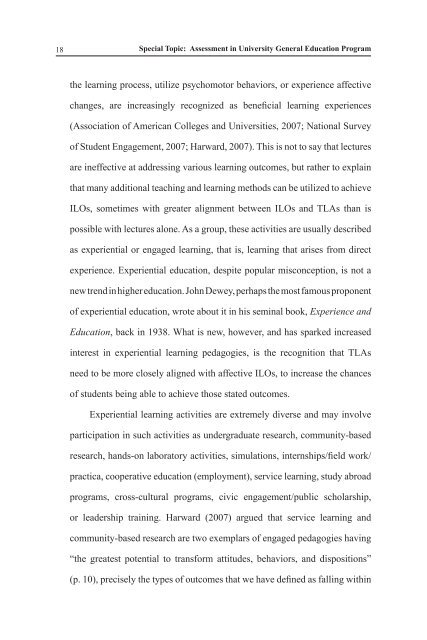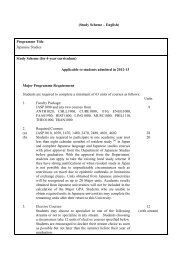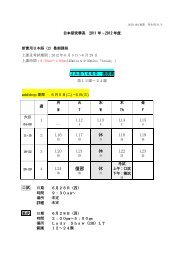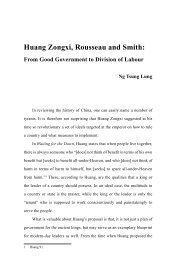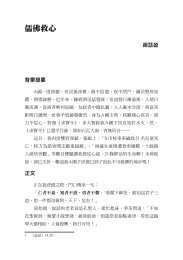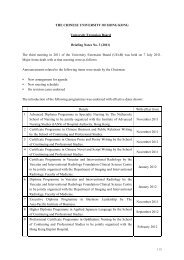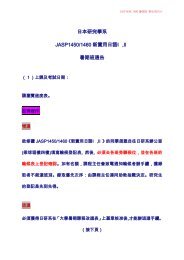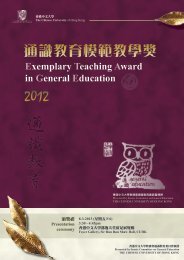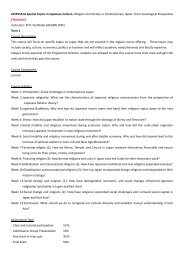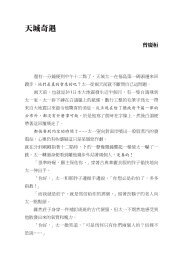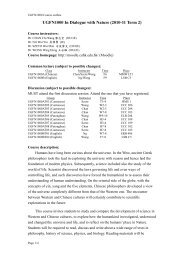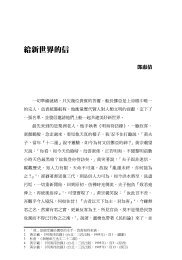ä¸è¼å ¨æ¸ - The Chinese University of Hong Kong
ä¸è¼å ¨æ¸ - The Chinese University of Hong Kong
ä¸è¼å ¨æ¸ - The Chinese University of Hong Kong
You also want an ePaper? Increase the reach of your titles
YUMPU automatically turns print PDFs into web optimized ePapers that Google loves.
18 Special Topic: Assessment in <strong>University</strong> General Education Program<br />
the learning process, utilize psychomotor behaviors, or experience affective<br />
changes, are increasingly recognized as beneficial learning experiences<br />
(Association <strong>of</strong> American Colleges and Universities, 2007; National Survey<br />
<strong>of</strong> Student Engagement, 2007; Harward, 2007). This is not to say that lectures<br />
are ineffective at addressing various learning outcomes, but rather to explain<br />
that many additional teaching and learning methods can be utilized to achieve<br />
ILOs, sometimes with greater alignment between ILOs and TLAs than is<br />
possible with lectures alone. As a group, these activities are usually described<br />
as experiential or engaged learning, that is, learning that arises from direct<br />
experience. Experiential education, despite popular misconception, is not a<br />
new trend in higher education. John Dewey, perhaps the most famous proponent<br />
<strong>of</strong> experiential education, wrote about it in his seminal book, Experience and<br />
Education, back in 1938. What is new, however, and has sparked increased<br />
interest in experiential learning pedagogies, is the recognition that TLAs<br />
need to be more closely aligned with affective ILOs, to increase the chances<br />
<strong>of</strong> students being able to achieve those stated outcomes.<br />
Experiential learning activities are extremely diverse and may involve<br />
participation in such activities as undergraduate research, community-based<br />
research, hands-on laboratory activities, simulations, internships/field work/<br />
practica, cooperative education (employment), service learning, study abroad<br />
programs, cross-cultural programs, civic engagement/public scholarship,<br />
or leadership training. Harward (2007) argued that service learning and<br />
community-based research are two exemplars <strong>of</strong> engaged pedagogies having<br />
“the greatest potential to transform attitudes, behaviors, and dispositions”<br />
(p. 10), precisely the types <strong>of</strong> outcomes that we have defined as falling within


